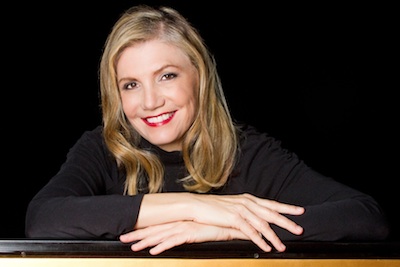The Willesden Project to Share Music-as-Healing Tools with Classroom Educators

As the Covid 19 pandemic requires educators to provide their students with new and unprecedented levels of social emotional support, The Willesden Project, a partnership of USC Shoah Foundation and Hold On To Your Music, is inviting teachers to a special webinar to learn strategies and engage with experts for using music and testimony as sources of healing in the classroom.
To be held November 17, the Healing Power of Music webinar will welcome concert pianist and author of The Children of Willesden Lane books, Mona Golabek, as she tells the story of how her mother, a child survivor of the Holocaust, gained strength from music and was able to survive and subsequently thrive.
The program also features special guest Dr. Beth Meyerowitz, Professor Emerita of Psychology, University of Southern California; Dr. Monika Wiley, Director of Fine Arts in the state of Georgia’s Clayton County Public Schools; and Will Richey and Alejandro Perez, Jr. from Journeymen Ink, a team of artists, athletes and activators passionate about cultivating social and emotional literacy in both youth and adults.
Dr. Meyerowitz, a trauma psychologist, will discuss how music can be a tool for healing. For over 30 years, Meyerowitz and her students have studied psychological reactions among survivors of highly stressful situations, such as genocide or the diagnosis of life-threatening illness.
Dr. Wiley will offer firsthand experience in advocating and supporting music and arts education in public schools, and the important role this plays in supporting students’ academic, social, and emotional success.
Will Richey and Alejandro Perez, Jr. lead Journeymen Ink and will frame the program with music and spoken word performance and discuss how music creates a space for healing. Journeymen Ink work with youth and adults in diverse communities and settings to encourage connection and reflection through art and storytelling.
The program will also feature input from students as well as testimonies of survivors from USC Shoah Foundation’s Visual History Archive who share experiences with the power of music.
Lesly Culp, Head of Programs in Education at USC Shoah Foundation, said music is a proven means with which teachers can help students cope with the challenges they face.
“Students need tools for coping and healing, and researchers confirm music can help foster resilience and be a restorative and therapeutic tool for post-traumatic stress,” she said.
Join us to learn strategies, to bring music to the classroom and enjoy live musical experiences from guests. Register here.
Launched in 2020, The Willesden Project aims to further the mission of education and testimony and bring the power of music and story to young people globally to contribute to their development as empathetic, knowledgeable and resilient individuals.
Like this article? Get our e-newsletter.
Be the first to learn about new articles and personal stories like the one you've just read.